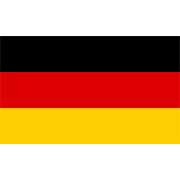Fiscal subject related
General information
Key Changes:
- Pre-Produced Content: Classified as electronically supplied services, these are not eligible for VAT exemptions or reduced rates.
- Live Streaming: These services, including hybrid events, are not considered electronically supplied services and may qualify for VAT exemptions or reductions.
- Place of Supply: Now determined by the participant's location, requiring foreign providers offering live seminars to German participants to account for VAT in Germany.
- Combination Services: If a live event includes recorded content, it is treated as a single service subject to the standard VAT rate.
Providers must ensure compliance with the new rules, verifying correct tax treatment based on the nature of their services. Immediate action is required to avoid non-compliance issues.
The updated VAT guidelines provide clarity but also introduce new compliance challenges. Providers of online events should review their offerings and prepare for the new regulations, effective July 2024.
Other news from Germany
Germany Amends the Application Decree to the Tax Code – AEAO
 Germany
Author: Ivana Picajkić
Germany
Author: Ivana Picajkić
On September 1, 2025, Germany’s Federal Ministry of Finance issued a BMF letter amending the Application Decree to the Tax Code (AEAO), updating rules on bookkeeping, electronic recording systems with TSE, and document retention. The changes align references with the July 14, 2025 GoBD update, ensuring consistency with Germany’s new mandatory e-invoicing system. Read more
Subscribe to get access to the latest news, documents, webinars and educations.
Already subscriber? Login


Germany: Rounding Rules in Tax Invoices
 Germany
Author: Ivana Picajkić
Germany
Author: Ivana Picajkić
Germany follows strict VAT invoice rounding rules under the UStAE, requiring tax amounts to be shown to the cent and rounded down if the next digit is 4 or less, or up if it is 5 or more. While EN 16931 allows flexibility in rounding methods, Germany mandates this specific approach to ensure consistency in tax calculations. Read more
Subscribe to get access to the latest news, documents, webinars and educations.
Already subscriber? Login


Germany: Is a QR Code Enough Instead of a Paper Receipt?
 Germany
Author: Ivana Picajkić
Germany
Author: Ivana Picajkić
Germany’s Higher Administrative Court of Lüneburg asked the ECJ to decide whether a QR code can replace a paper receipt from weighing scales, challenging the long-held view that only printed paper meets legal standards. The case could redefine receipt rules under EU law, focusing on whether digital formats still guarantee transparency, legibility, and customer protection. In August 2025, the Highe... Read more



Germany: Court Rejects Fast-Food VAT Allocation Method
 Germany
Author: Ivana Picajkić
Germany
Author: Ivana Picajkić
Germany’s Federal Fiscal Court ruled that fast-food chains cannot use the “food-and-paper” method to allocate VAT on discounted menus, as it can inflate the price of drinks beyond their standalone value. The court emphasized that while companies may choose their allocation method, it must reasonably reflect economic reality. Read more
Subscribe to get access to the latest news, documents, webinars and educations.
Already subscriber? Login


Reminder: Germany’s BMF Published Second Amendment to GoBD
 Germany
Author: Ivana Picajkić
Germany
Author: Ivana Picajkić
Germany’s Ministry of Finance issued a second amendment to the GoBD on July 14, 2025, updating electronic record-keeping rules to align with mandatory e-invoicing from January 1, 2025. Key changes clarify that storing structured data (e.g., XML) is sufficient, while PDFs or hybrid elements only need archiving if they contain additional tax-relevant information. On July 14, 2025, the German Federal... Read more



Aligning German VAT Rules to the European e-Invoicing Standard (EN 16931)
 Germany
Author: Ivana Picajkić
Germany
Author: Ivana Picajkić
Germany has published a guide aligning its VAT Act (UStG) requirements with the European e-invoicing standard EN 16931, ensuring that all mandatory invoice details are mapped to structured fields like invoice date, number, and supplier data. This harmonization, developed jointly by KoSIT, FeRD, and AWV, provides a clear reference for issuers and software providers, reducing legal risks and enablin... Read more



Germany to Keep Reduced VAT Rate for Restaurant Food Until 2026
 Germany
Author: Ivana Picajkić
Germany
Author: Ivana Picajkić
The Federal Government confirmed it will maintain the 7% VAT rate for food served in restaurants from 1 January 2026, as agreed in the coalition deal. In a response to a parliamentary question from the Greens, the government referred to studies from the COVID-19 period and international data showing that VAT cuts sometimes lead to lower consumer prices. However, it noted that not all savings need... Read more


